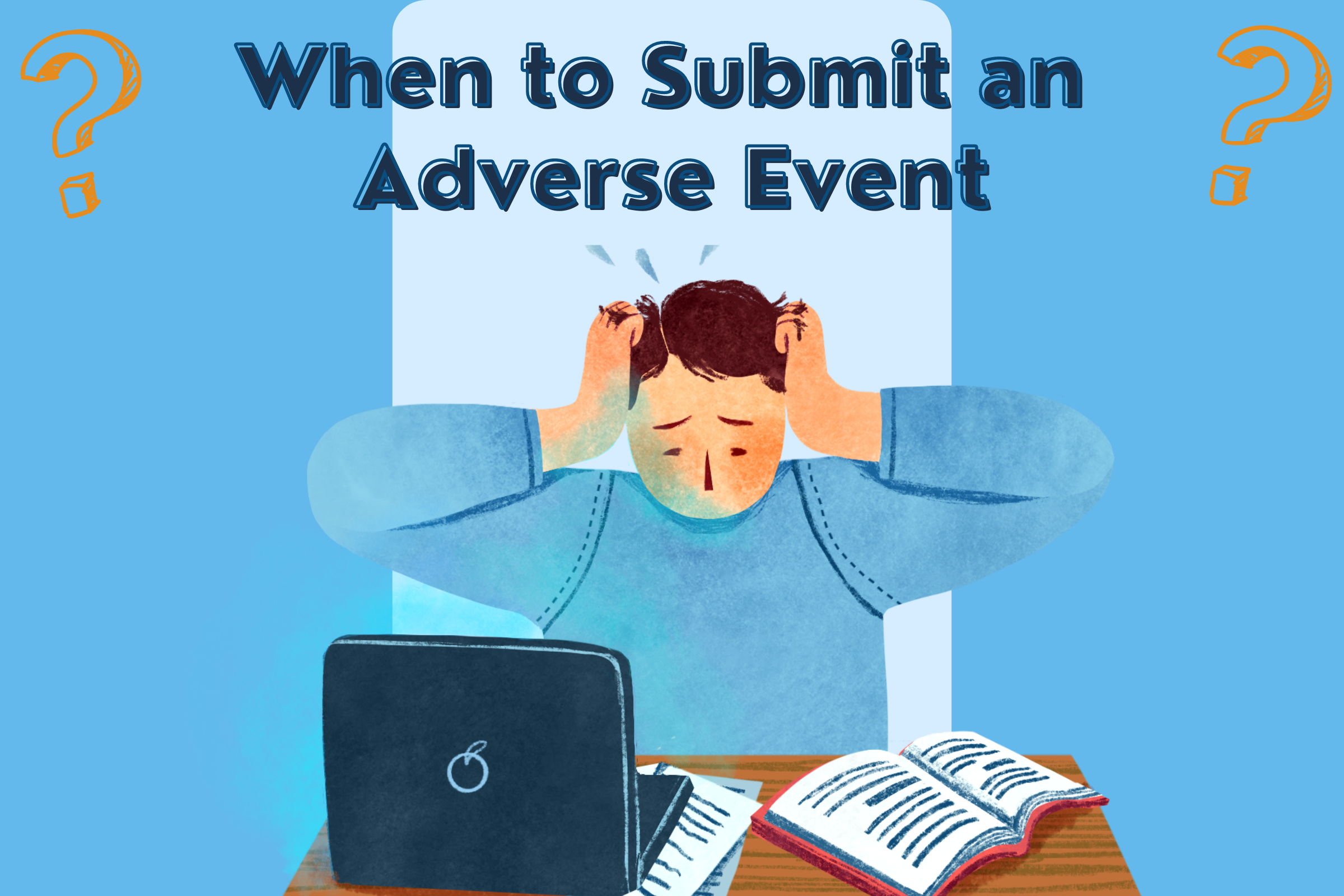An adverse event is a situation that occurs during the course of a research protocol which causes physical or psychological harm, increases the risk of physical or psychological harm, or results in a loss of privacy and/or confidentiality to a research participant or others (such as family members). An adverse event may also include any serious continuing noncompliance with the regulations or requirements of the Institutional Review Board (IRB).
Adverse events should be reported to the IRB immediately via email (IRB@tc.edu) or phone (212-678-4105) or within 5 business days of the investigator becoming aware of the event. Any other non-serious unanticipated incident should be reported to the IRB shortly after the investigator becomes aware of the problem. After contacting the IRB office, IRB administrators will guide the researcher on the next steps, including the likely submission of an adverse event report in Mentor IRB.
Adverse Event Checklist
Researchers, especially those in the socio-behavioral sciences dealing with psychological harm, may have questions about what requires an adverse event report to the Teachers College (TC) IRB. The following checklist will aid in determining whether an adverse event occurred.
During the course of the subject’s participation in the research, or associated with participation in the research, did the participant experience:
- Untoward or unfavorable treatment or medical occurrence?
- For example: Injury, worsening of their diagnosis, or death.
- Abnormal signs (for example, abnormal physical exam or laboratory finding), related symptom(s), mental health, or disease(s), temporally associated with their participation in the research?
- For example: A participant develops a skin rash from wearing a research test device on their wrist.
- Significant psychological or physical distress, greater than would be expected on a daily basis?
- For example: A participant reports severe discomfort, pain, or emotional distress during the study activity.
- A loss of privacy and/or confidentiality?
- For example: A breach of identifiable personal, medical, or educational records.
Additionally concerning an adverse event:
- Did the conditions of the research change such that there is an increased risk to participants that were not previously reported in the original protocol?
- For example: Research activities providing medical care to participants were suspended due to a natural or person-made disaster or unanticipated threat.
- Were the research activities proposed in the original protocol found to be more harmful or risky to participants than originally anticipated?
- For example: When at the study site, the researcher learned that community members did not have access to clean running water and this fact raised new concerns for the study.
- Did harm come to the participant while traveling to or from the research site?
- For example: A participant gets into a car crash on their way to the research site.
Harmful or risky events which occur during a research study but are not directly related to the study activities may still be considered an adverse event. For example, the spread of COVID-19 among in-person research participants and lab members should be reported to TC IRB as an adverse event even if it may not be directly correlated to the time an individual spent during a research lab visit.
As a rule of thumb, if you have a question about an incident or concerns about a potential incident, seek support from the IRB office immediately.
For student protocols, the researcher should also include their faculty sponsor in the adverse event or incident reporting. Faculty sponsors are often actively involved in the student’s research and can provide recommendations about research design aimed at reducing the risk to human subjects, while also serving as a point of contact for human subject concerns and questions.
If you ever have questions about a situation that may be elevated to the level of an adverse event, please contact TC IRB, IRB@tc.edu, (212) 678-4105, as soon as possible. Adverse events involving subjects at TC must be reported within five days, while adverse events occurring at other sites must be reported within 30 days. TC IRB is here to advise and support researchers in navigating adverse events and will make every effort to respond in a timely manner once an event is reported.
